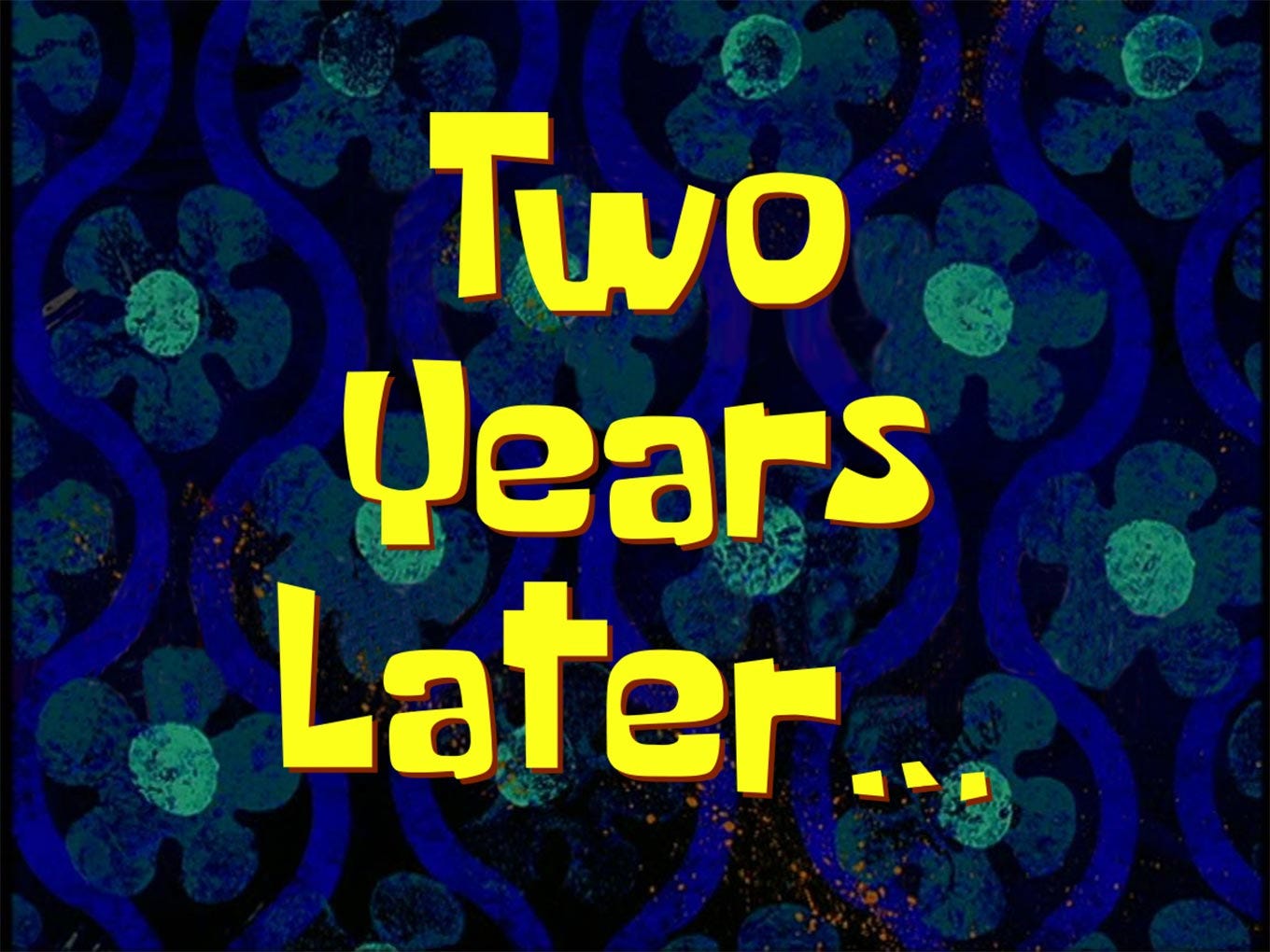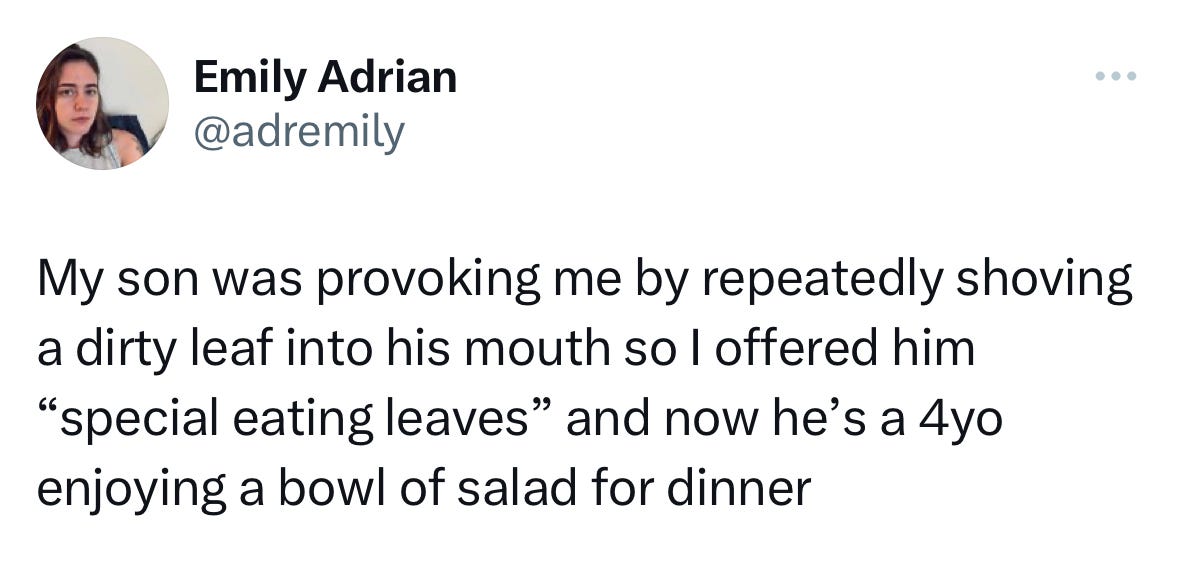How is it June already? The calendar starts to get particularly relentless time of year, between end-of-term teacher meetings, the extra-curricular clubs having their final shebangs, and a flurry of birthday parties getting squeezed in before they all break up for the summer. We sat down with my son’s teacher on Tuesday, and I’m providing a transcript of our chat here … just kidding. For now. But it suddenly dawned on me that he’s been in his class since September—nine entire months ago. How did that happen so fast?
My daughter confidently informed me over dinner she has eleven days of school remaining until she’s done for the year. Technically it’s ten and a half because their last day is a half day. But she’s right: two school weeks, and then she’s off for eleven more. We’re doing what I assume parents worldwide are doing this time of year—juggling collaborative lists (whether on Notes of good old paper) with a calendar (again, digital or paper) close to hand.
Things will slow down here a little over the summer. Part of it is because you will have your hands full too, and partly to have work and home co-exist with equanimity. Summer offers a time to step away from the keyboard and be more dad. There are some fun things to share between now and then, and folks who’ve been around here for a while—I’m talking to the old-school crew here—may see some old favourites get a re-up.
Today is one of them. This essay was initially shared in September 2021 when there were a little over 2,000 of us. I’ve given it a fresh lick of paint and a Spongebob-flavoured post-script. One suggestion for anyone spending a significant amount of time with a child over the summer is to help them find a hobby, and if you can be involved, all the better. I plan on running two summer camps with the kids, and will be sharing more soon with paid subscribers, in case you want to join in at home.

I bought a piano.
Well, first, I bought a Rubik's Cube.
And we need to start there.
In the summer of 2021, on a trip to the UK, we spent ten days locked down. It was my third isolation of the year. Going into it, I knew that my hands and head would be jonesing for something to do. Solving a Rubik's Cube has always been on my list of "things I wish I could do, but I’ve never got around to it, and now I have kids I probably never will." So I sat down with it with the cube, cued up this video and this article, gave myself some time—of which I had plenty—and figured out how to solve it.
My time now sits respectably under 2 minutes.
It made me reconsider the other items on that list. A clear frontrunner was playing the piano. I’d marked it as unattainable, a task not even worth starting because I’d be commencing 30 years too late. What would be the point of trying to learn how to play this instrument well into my fourth decade? I would never be great. Hell, it would take a lot of work to get good. It needed time. And what parent has that?
A few weeks after overcoming the cube, we looked after a friend’s house, which had a keyboard sitting there. I tinkered for a week, trying to teach myself how to play Aphex Twin’s ”Avril 14th” via YouTube tutorials. I got surprisingly far in a few hours and was inspired to buy a digital piano for the house. For the uninitiated: in ye olde times you could buy a piano—sounds great but is heavy, expensive and needs a lot of maintenance—or a keyboard, the opposite of all those things. Then, in the 1980s (which young folks today are apparently calling “the late 1900s”, those baby-faced motherfuckers), digital pianos popped up and filled the gap. Weighted keys made them feel closer to a real piano, and things I don’t understand inside made it sound like one too. Cheaper, lighter, and without a need to tune it once a year. We bought a Roland FP-10. I did the required Reddit research, and it came down to a toss-up between Casio, Roland and Yamaha. Of course, I went with the company that made these magical boxes that brought me to a higher state of consciousness in my twenties. Brand loyalty runs deep.
I've been tinkering. Learning a few pieces I adore: Clair de Lune, Pyramid Song, Gymnopédie No.1, Still D.R.E. … you know, the classics. The kids have been watching curiously. My eldest wants to know more: how do you play it, what happens if you do “this”, what kind of music it can make? Most of what I've been learning to play has been classical, which led her to ask, "Can it only play old music?" A question that came with an answer close to bottomless. I showed her what a few folks had done with a piano over the years—Nina Simone, Paul McCartney, David Bowie, Freddie Mercury, Elton John, Alicia Keys, James Blake, Tyler, the Creator, Nils Frahm—as we descended into a sonic rabbit hole together.
The piano is magical—in a way something like the guitar isn’t—because of its purity. All pianos sound roughly the same (a comment I’m sure will enrage some) with their 88 black and white keys. What you see is what you get; what you hear, you can play—talent dependent, of course. It’s not like a guitar, where you’ll need the same model, and the right pedals, to get a similar sound. The piece you're listening to, and the one you're playing, are close cousins. The only differences are down to the fingers playing it.
So I play at home, a little every day. I'm using an app called Synthesia, which is best explained as "Guitar Hero for piano." You import a MIDI file—they’re all over the internet, and if you've been online as long as me, you’ll remember them playing in the background of a GeoCities page—and you play along. I felt this would be a more productive start than staring at a piece of sheet music playing Frère Jacques every day for a month. Ain’t nobody got time for that. Padme's curiosity has been piqued, and—at her request—my wife signed her up for piano classes at school. She'll play Wednesday lunchtime and will hopefully carry on hammering those keys at home.
Playing the piano fits nicely into the cadence of parenting. You can sit down for 10 minutes, and whatever negative emotion you feel will melt away as you play. And there's a diminishing return to practice. Concentration drops off after 20 minutes—it’s better to walk away and return later. Beginners are told to aim for 10 minutes daily rather than an hour weekly.
I was talking about these escapades with a close friend here in Barcelona. He loves how, in English, you "play” the piano. In Spanish, they use the verb “tocar”, to touch. "Playing is a much better word,” he tells me. “It makes it feels fun, like a game to enjoy.”
He’s right. It is fun. It’s like we're playing together. I've always held off on pushing my daughter to learn the piano, hearing a voice warning me not to live vicariously through my kids and weigh them down with my unfulfilled dreams. But the piano helped me realise that you can use your kids as an excuse to go back and fulfil those dreams yourself. You’re not going to score the winning goal in a World Cup final, headline the Pyramid Stage at Glastonbury, or win an Oscar for a heart-wrenching portrayal of a conflicted man. But you can do the thing behind the thing.
You can start literally anything, and experience the joy of slowly getting better, approaching a new challenge with a beginner's mindset. With kids, you might even get to enjoy it together.
The piano isn't the thing. It's just a MacGuffin.
What might yours be?
I’m pleased to follow up and share that we’re both still playing—she’s still taking lessons; I’m still sitting down for ten minutes learning how to make this sound good. Padme is now at the level where I have begun to slightly relax my blanket PLUG IN THE HEADPHONES WHEN WE ARE IN THE LIVING ROOM rule.
I’m using “the Guitar Hero app” a lot less and attempting to read sheet music after realising the “playing along with a video” method has its limits. But I’ve been buoyed by the fact that both Thom Yorke and Paul McCartney never learned to read music, and they seem to play the piano reasonably well? My daughter, on the other hand, is getting increasingly familiar with reading notation, and has already passed me by. Chalk another one up on the list of languages she understands, and I don’t.
My preference is for pieces used with emotionally devastating effect in popular culture. I’m never far away from “Clair de Lune” or a piano rendition of Max Richter’s “On The Nature of Daylight” (which you’ll remember from Arrival, or that spectacular episode of The Last of Us). I realise I am potentially setting my kids up for complete heartache in the future—if those songs are still being used in years to come—where they experience the emotional impact of a movie’s denouement whilst thinking, “Wow, my dad used to play a terrible version of this on the piano when we were kids.”
Good Dadvice
Say Hello
How did you like this week’s issue? Your feedback helps me make this great.
Loved | Great | OK | Meh | Bad
Branding by Selman Design. Illustration by Tony Johnson. Survey by Sprig. Follow The New Fatherhood on Twitter and Instagram. Send me links, comments, questions, and feedback. Or just reply to this email.









I played the violin (3rd grade only), alto saxophone (4-12) and when I turned 21 I asked for piano lessons for my birthday because my parents never got me them as a kid. I haven’t played since but it gnaws on me.
Well, except once during the pandemic when I played Careless Whisper on the melodica.
Maybe this repost will reignite my desire to play again.
I hadn't read this one before, that I remember. I also got a piano and a rubik's cube. But in that order. Same thing. A little every day.